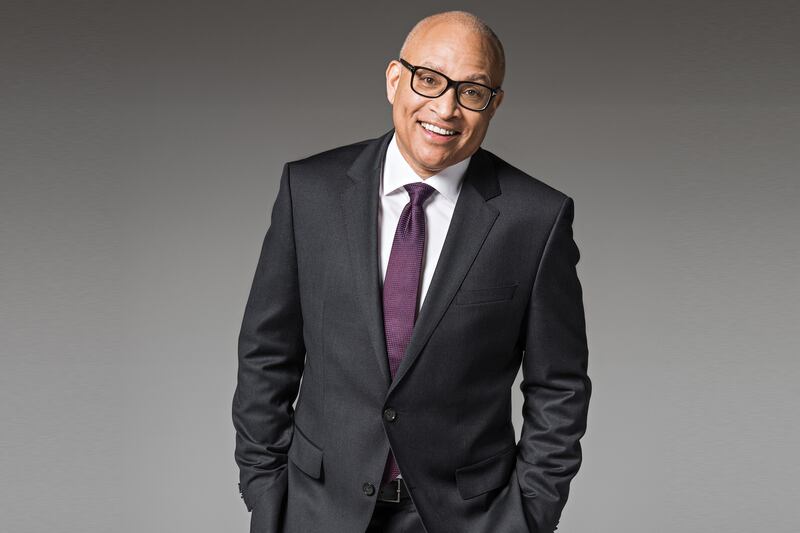After Tuesday night’s episode of The Daily Show with Jon Stewart, when he addressed last week’s “kerfuffle” regarding insensitive tweets made by his recently announced replacement Trevor Noah, much of the Twittersphere and media world has simmered down and come to the realization that Noah will indeed succeed Stewart in the coveted satirical news anchor chair.
Regarding the success of the new iteration of The Daily Show, Stewart said it best: “Trevor Noah will earn your trust and respect…or not.”
Yet regardless of the success of the Noah’s version of the show, the juxtaposition of South African-born, mixed-race Noah and African American Larry Wilmore of The Nightly Show, which replaced The Colbert Report in January, could be enlightening and influential concerning discussions about race in America.
The complexion of Noah’s skin may incline one to believe that he should understand the plight of black Americans whose families have lived in America for generations and the nuances of black American life, but his backstory should make it clear to all that he is more of an outsider looking in.
Noah was born in apartheid South Africa to a black African mother and a white Swiss-German father. At the time, it was illegal for blacks and whites to marry or have children, so in Noah’s words, he “was born a crime.” When his mother and father walked down the street with him, his father had to stand on the other side of the road and wave at young Noah because it was illegal for him to be seen with his son and the mother of his child. Likewise, it was also illegal for Noah’s mother to be seen with Trevor because he proved that a crime had been committed just by existing in his own mixed-race skin. In his stand-up, Noah jokes how his mother had to let go of his hand and pretend that she did not know him if she saw the police.
So Noah most certainly has suffered racism in his life, and like countless people the world over, he has taken a stand against the practice. Yet applications of racist beliefs vary from society to society even if the resulting pain can be understood by all.
The application of racism in South Africa is vastly different than that implemented in the United States, where hypo-descent, or the one-drop rule, has unofficially been the law of land for most of American history. In effect, the appearance of any amount of African blood meant that you were black in America. Half black, 1/4 black and even 1/8 black were all the same, and therefore all of these people had similar life experiences.
As Americans, our initial perception of Noah naturally gravitates toward viewing him as a part of the American black or African-American community despite having no obvious cultural connection and being raised a continent away. We reflexively transplant an American identity onto Noah and disregard his real heritage because it is alien for Americans to view someone who looks like Noah as foreign. Therefore, Noah’s foreign perspective and familiar face can be off-putting if you do not acknowledge the back story of the messenger.
Not too long after the announcement that Noah would take over for Stewart, The Washington Post published an article by Wendy Todd with the headline, “Yes, the new ‘Daily Show’ host is black. And he’s spent his career making fun of African-Americans.”

In the article, Todd, who is African-American, points out how Noah’s comedy routines regularly make jokes at the expense of African Americans and how Noah finds humor in the term “African-American.”
Todd takes offense at these jokes and finds it even more reprehensible that a person of color is making them.
“It’s all too acceptable to disrespect people of color in this country, especially African Americans, even when you’re also a person of color,” Todd wrote, concluding: “Well, you can keep him. I’d like a conscious person of color at the wheel, not someone who’s already driven me off of a racist cliff.”
Todd’s frustration is legitimate, but the conversation does not stop there. This frustration, anger, and confusion can advance our discussion on race in America. Noah is a precocious adopted son who fits in with the family, but is charged with comically highlighting the absurdity of our world.
Noah is an African who has recently moved to America, and not an Africa-American despite passing for one. These two are far from the same, but the impact of a hypo-descent weighs heavily on us all. Noah has already incorporated into his comedy routine jokes about being harassed by the cops because regardless of where he comes from he is viewed as an African-American by both black and white Americans.
Wilmore is a veteran television writer and producer who has worked on celebrated shows featuring predominantly black casts that appealed to black and to white audiences, including In Living Color, The Fresh Prince of Bel-Air, The Jamie Foxx Show, and The Bernie Mac Show. Most recently he was the executive producer of Black-ish.
Wilmore has spent his career presenting black life in America to a mainstream audience and he has continued to do so with The Nightly Show. The segment “Keeping it 100” references slang used within the African-American community; it’s a derivative of “keeping it real” and loosely means telling the truth despite the potential consequences (the skit “When Keeping it Real Goes Wrong” on Chappelle’s Show displays how this theme has been in African-American comedy for over a decade). Black comedian Mike Yard is one of the three on-air contributors. The other contributors are Shenaz Treasury, a popular Bollywood actress, and Ricky Velez, a Latin American who was born and raised in Queens.
The Nightly Show is definitely not your average late-night show in America with a white host and primarily white staff. To shake up the shows, Comedy Central wanted an African-American host with a proven track record of successfully crossing America’s racial divide, and Wilmore was that guy. With Noah, Comedy Central has shaken it up again by having a host whose presence will question the structure of our racial divisions.
Noah and Wilmore will inevitably have different stances on many of the political issues of the day, but they will not adhere to the traditional left vs. right or black vs. white divides. One is a foreigner working to understand and explain a relatively new environment, and the other is a black American who knows the environment all too well. Our expectations of these two and the dissimilar perspectives they provide may advance and enlighten America’s discussions on race one joke at a time.






